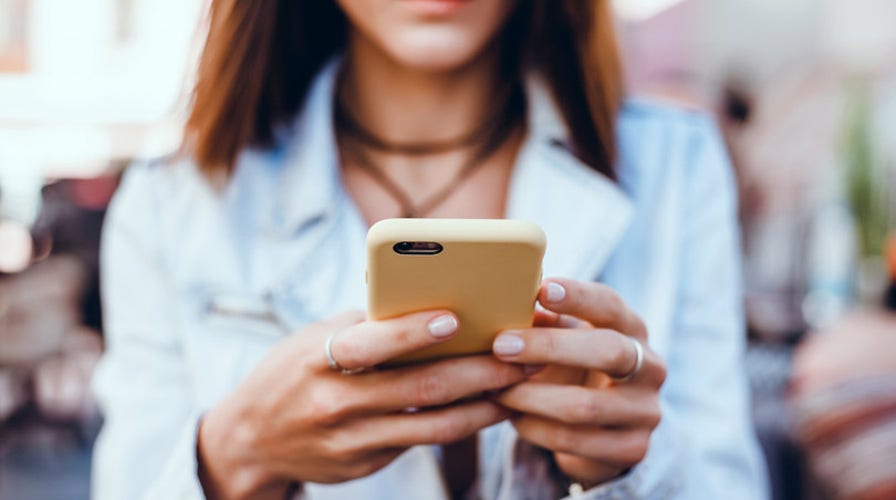Fox News Flash top headlines for July 5
Fox News Flash top headlines for July 5 are here. Check out what's clicking on Foxnews.com
‘Excessive’ use of smartphones by college students is linked to poorer grades, alcohol misuse and more sexual partners, according to a new study.
Researchers from the University of Chicago, the University of Cambridge and the University of Minnesota surveyed a sample of U.S. college students to find the impact of their smartphone use.
Some 3,425 students were invited to take the survey, just over a third of whom responded. One in five of the respondents who took the survey reported “problematic” smartphone use, according to the study.
FOURTH OF JULY HOLIDAY IS DANGEROUS FOR SMARTPHONES
Characteristics of problematic use include excessive use, trouble concentrating in class or at work due to smartphone use, feeling anxious or impatient without a smartphone and missing work due to smartphone use, according to the researchers. Physical consequences such as light-headedness and dizziness are also cited as effects of excessive smartphone use.
Problematic smartphone use was found to be greater among female students, with researchers noting that 64 percent of the “problem users” were female.
The study also found a link between problematic phone use and lower grade point averages.
VIDEO SHOWS IPHONE SHREDDED TO DUST IN A BLENDER, ALL IN THE NAME OF SCIENCE
“Although the effect of problematic smartphone use on grade point averages was relatively small, it’s worth noting that even a small negative impact could have a profound effect on an individual’s academic achievement and then on their employment opportunities in later life,” said Professor Jon Grant from the Department of Psychiatry & Behavioral Neuroscience at the University of Chicago, in a statement.
The results of the Health and Addictive Behaviours Survey are published in the Journal of Behavioral Addictions.
The survey also found that, while students reporting problematic smartphone use were typically less sexually active than their peers at 70.9 percent compared to 74 percent, the proportion of students reporting two or more sexual partners in the past 12 months was higher among “problem users.” Some 37.4 percent of sexually-active “problematic smartphone users” reported two or more sexual partners compared to 27.2 percent of sexually active users who reported no problem phone use.
ADDICTED TO YOUR SMARTPHONE? TECHNOLOGY IS TRYING TO HELP
Researchers also report that the proportion of respondents with six or more sexual partners was more than double among sexually active smartphone users at 6.8 percent compared to 3 percent.
“Smartphones can help connect people and help people feel less isolated, and our findings suggest that they may act as an avenue for sexual contact, whether through sustained partnerships or more casual sex,” said Dr. Sam Chamberlain, Wellcome Trust clinical fellow and honorary consultant psychiatrist from the Department of Psychiatry at the University of Cambridge and the Cambridge & Peterborough NHS Foundation Trust, in the statement.
Alcohol misuse was also found to be “significantly higher” among those displaying problematic smartphone use, compared to a control group. However, researchers did not find any significant link with other forms of substance abuse or addiction.
COMPULSIVE VIDEO-GAME PLAYING NOW QUALIFIES AS MENTAL HEALTH CONDITION
“It’s easy to think of problematic smartphone use as an addiction, but if it was that simple, we would expect it to be associated with a wide range of substance misuse problems, especially in such a large sample, but this does not seem to be the case,” said Chamberlain, in the statement. “One possible explanation for these results is that people develop excessive smartphone use because of other mental health difficulties.”
The experts note, however, that the study was a “snapshot” or smartphone use at a specific time, so it is unclear whether problematic smartphone use leads to mental health issues or vice versa.
More research is needed on both the positive and negative impacts of smartphone use on mental health, they say.
‘TECH ADDICTS’ SEEK SOLACE IN 12 STEPS AND REHAB
The addictive nature of technology has been in the spotlight in recent years. In 2018, for example, the World Health Organization said that compulsively playing video games now qualifies as a mental health condition.
CLICK HERE TO GET THE FOX NEWS APP
WHO said classifying "Gaming Disorder" as a separate condition will help governments, families and health care workers be more vigilant and prepared to identify the risks.
The Associated Press contributed to this article. Follow James Rogers on Twitter @jamesjrogers

